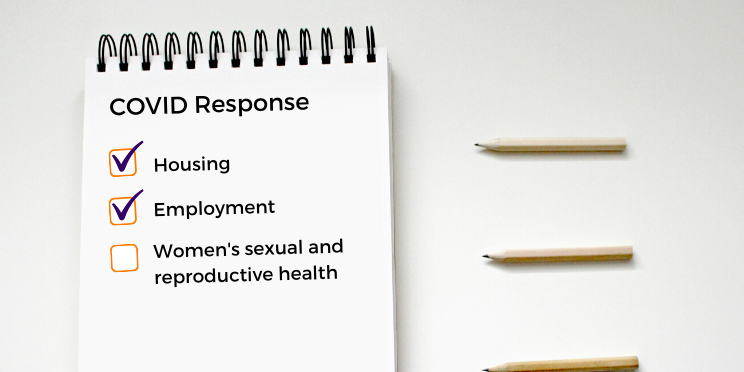
Even before lockdown restrictions began to ease, many were already questioning whether the impact of the response measures has been worse than the impact of the pandemic itself. The economic evidence has shown that the current crisis has disproportionately affected women in Australia in relation to employment, housing and unpaid labour and that we are heading towards a ‘pink-collar recession’. However, the implications for women’s sexual and reproductive health (SRH) is less talked about and less well-known.
Australia’s reallocation of resources during this pandemic – between Job Keepers and Job Seekers and between ‘permanent residents’ and ‘temporary visitors’ - not only highlights how women’s access to SRH services and information can be overlooked in times of crisis but also where our priorities lie. Yet, life goes on. Social distancing doesn’t stop people ovulating, conceiving, needing healthcare or giving birth. It is precisely during a crisis that comprehensive sexual and reproductive health services are needed more than ever.
We also must remember that the rising incidence of domestic violence is not simply a matter of policing and safety but one that encompasses women’s rights to receive safe, affordable and appropriate health services and support, including access to abortion. Travel restrictions, household stress, reproductive coercion and unwanted pregnancy are a potent mix of circumstances that place women in danger.
Today is the day celebrated globally as the International Day of Action for Women’s Health. Now into its third decade, this year’s Call for Action, ‘Women’s Health STILL Matters’ reminds us that women’s access to essential sexual and reproductive health and rights information and services remain critical in responding to COVID-19.
It’s important to ensure that information and support do not reinforce discrimination, but rather respond appropriately to the different needs of women and girls, especially those groups most marginalised and excluded. Much like the hygiene measures we’ve all had to strictly adhere to, we should continue to be vigilant about our response to women’s sexual and reproductive health needs. Let’s keep it on our COVID response agenda.
